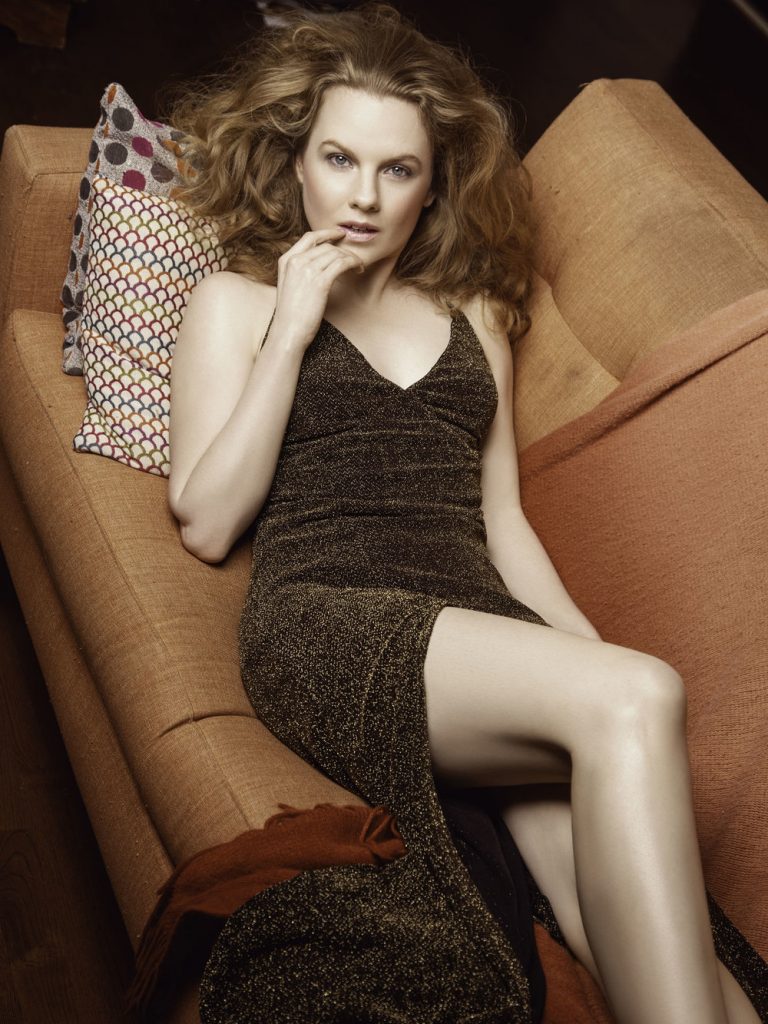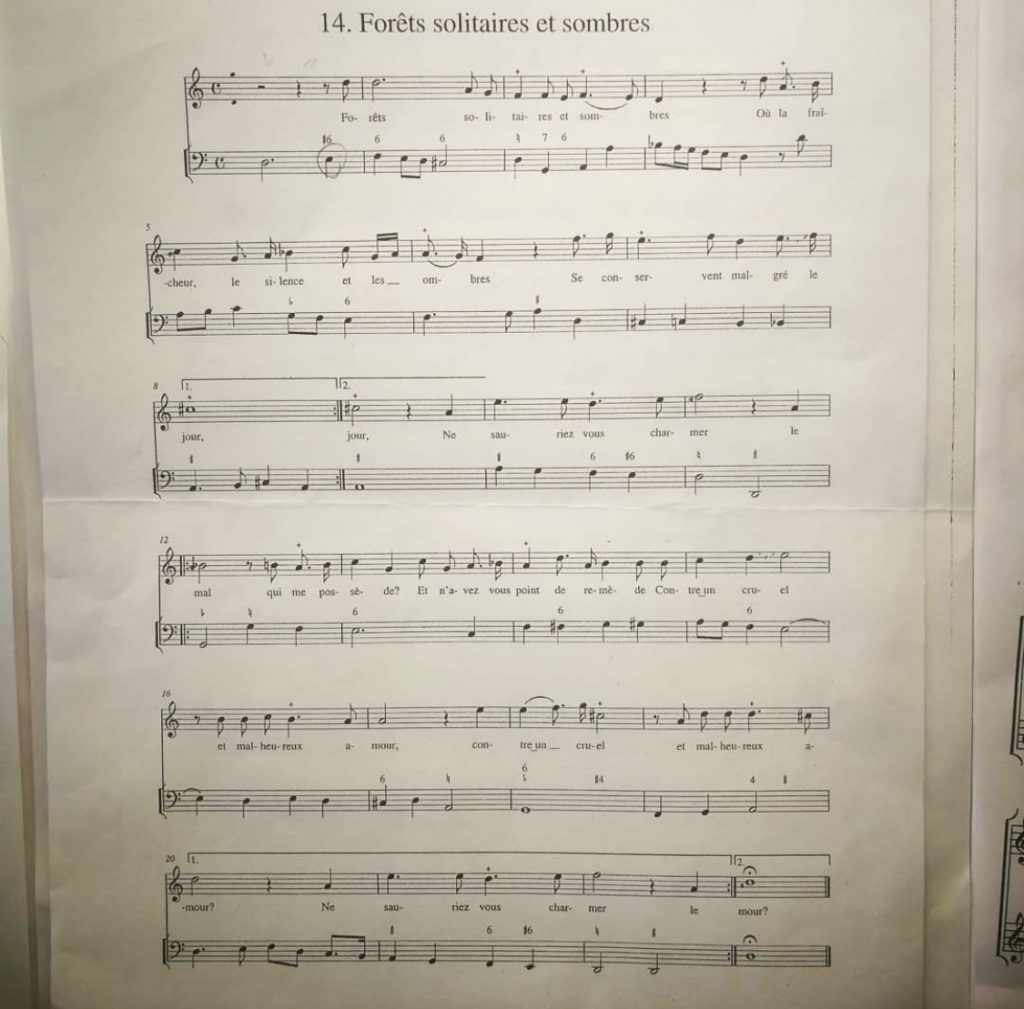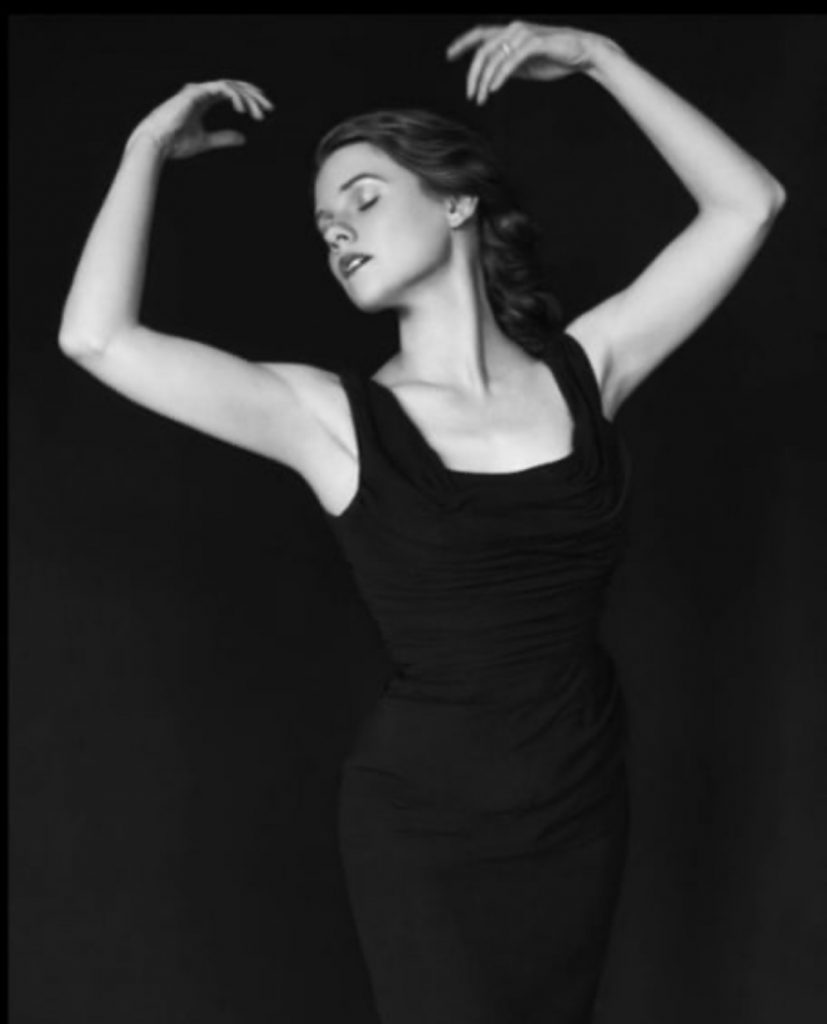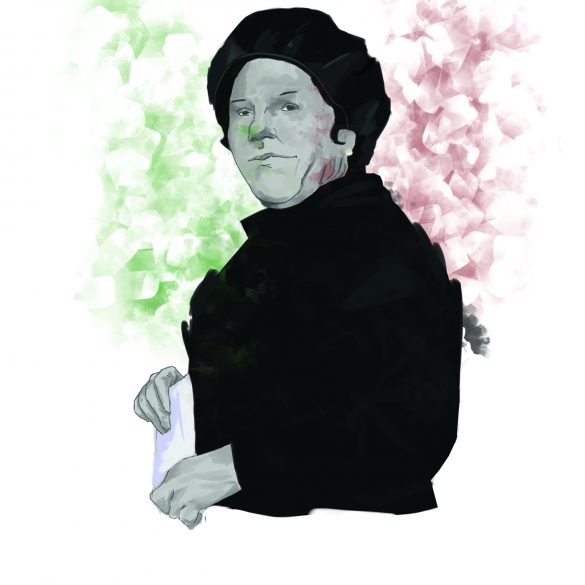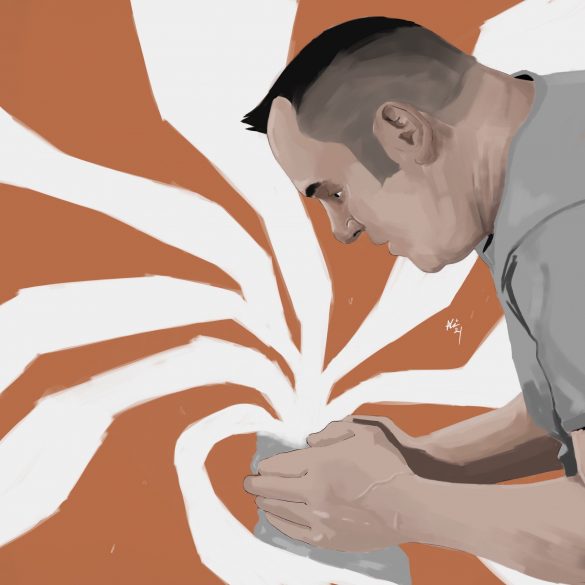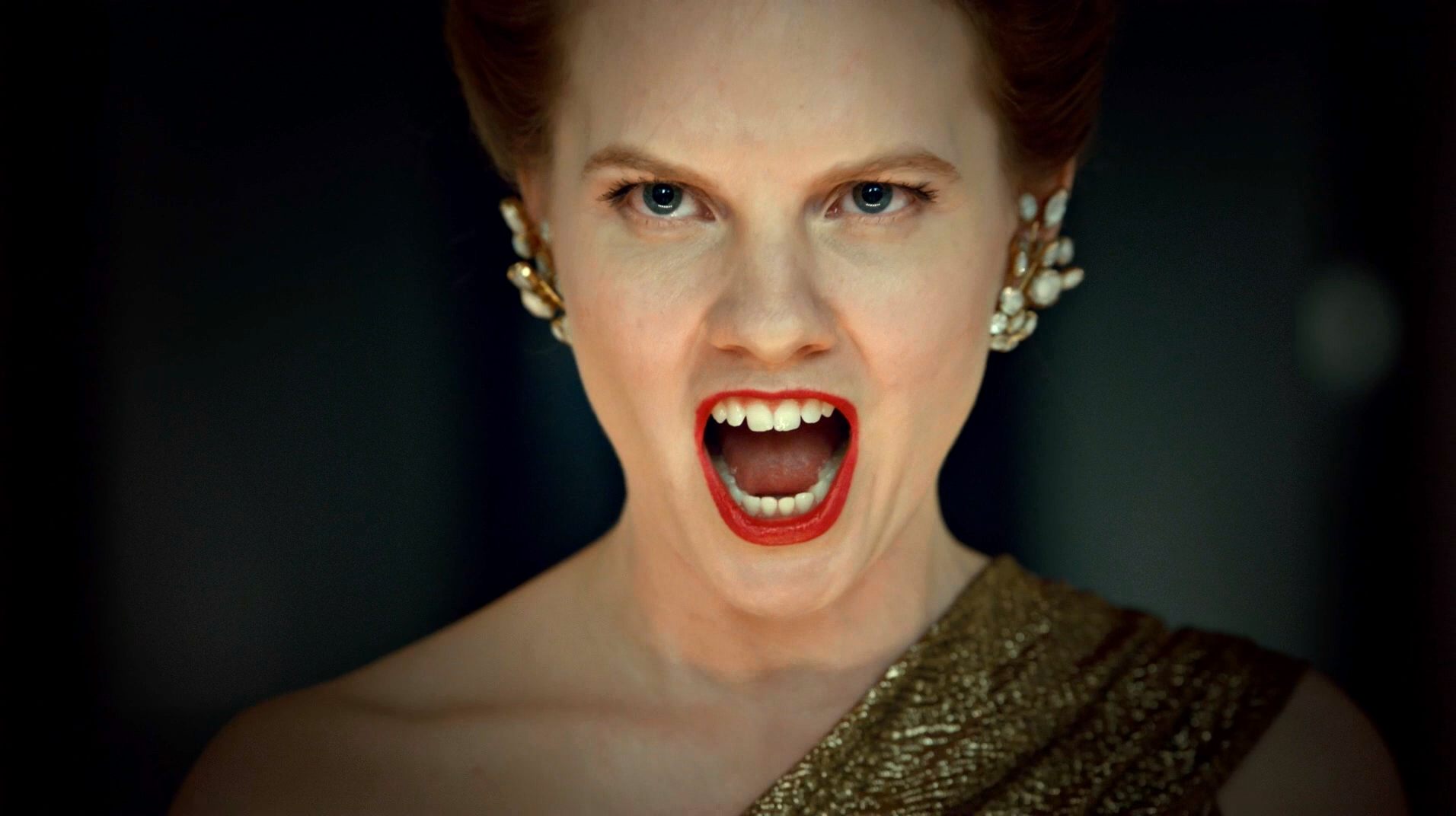Emily Klassen
Giulio Cesare in Egitto, Act 3, 35. Aria (Cleopatra): Piangerò la sorte mia, Scene 3 // George Frideric Handel
Hannibal (TV Series), 2013-2015, NBC
Season 1 Episode 7: Sorbet
Emily Klassen is a Toronto-based soprano and a screen actor. A specialist in Early Music, she has appeared as a guest soloist with ensembles in Canada and abroad. She will be touring this summer in several concert series across Italy. Emily gained international recognition for her operatic performance in the NBC series “Hannibal.”
The part you performed Aria de Cleopatra: Piangeró la sorte mía has turned out to be one of the most unforgettable scenes of the Hannibal universe. How did you get involved in the NBC series?
Thank you very much. I’m so happy to be part of the Hannibal universe! Even though it’s a short scene in the series, I’ve heard from so many kind Hannibal fans who have supported my work since. I’m very grateful.
I auditioned like everyone else. I already had a few small television acting credits, including another operatic role on an American network show. So when they were looking to cast an opera singer, my agent got me an audition time.
They had originally asked performers to prepare about 90 seconds of an aria from Verdi’s Il Trovatore to be sung a capella. This isn’t a role I would normally sing but I prepared it anyway and, fortunately, booked the role.

Who decided on Piangerò la sorte mia for the scene? Did you have a role in choosing the piece, or was it already decided?
I chose the aria. As I recall, they wanted an excerpt with some fast notes and a high note. That was all the direction I got. At the time, Piangeró was my go-to audition aria. I knew I could sing it under pretty much any circumstances so I found a section, the B section, that I thought would work. It’s also an exciting and dramatic moment in the piece talking of fiery vengeance. I thought it would fit the tone of the show.
One fun story about recording it was I had a completely different cadenza prepared for the end. It went high but then ended on a low note. While we were recording, apparently the producers wanted me to end on a high note, so I had to rewrite the cadenza on the spot.
Will you please tell us what the aria is about?
It’s a fantastic aria and Cleopatra is such a powerful role to embody. It’s from the Handel opera Giulio Cesare in Egitto (Julius Caesar in Egypt). This da capo aria happens in the third act. Cleopatra is imprisoned by her brother. She thinks she is beyond the help of her allies, Sesto and Cornelia, and she believes her beloved Cesare is dead. In the first part, or A section, she weeps for her fate and she believes she is about to die, so the music is slow and sad. But when we get to the second part or B section, she furiously and passionately tells how she will return as a specter and seek her revenge. It’s such a thrilling moment.

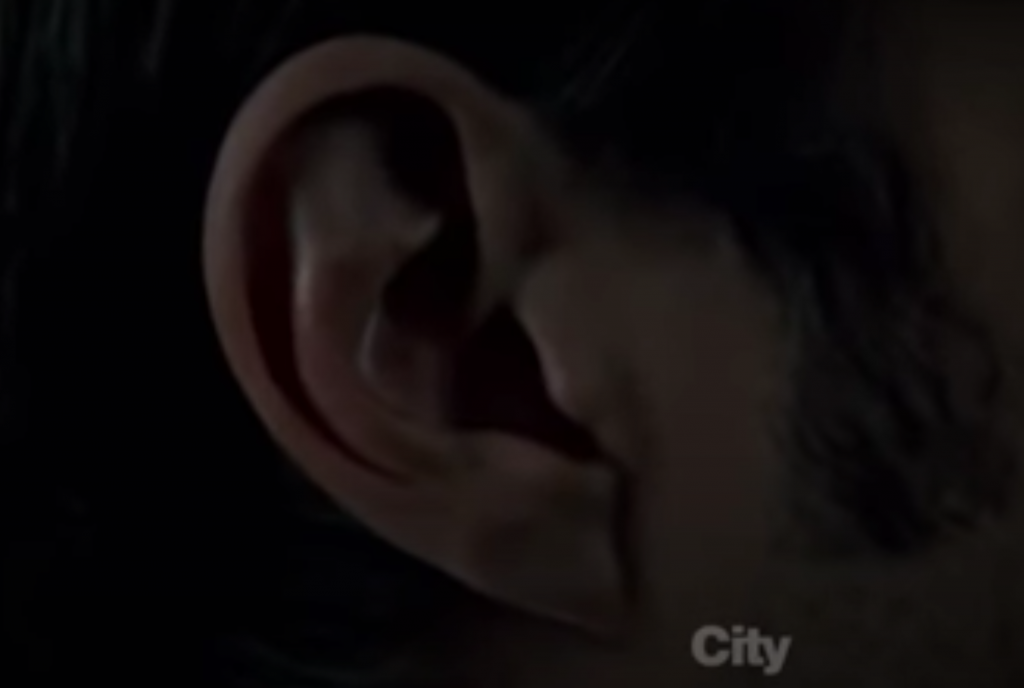

In Ridley Scott’s Hannibal movie, Vide Cor Meum was used in the opera scene. How would you compare these two arias in terms of reflecting Dr. Lecter’s dark world?
I’m afraid I don’t know very much about that piece. I believe it was composed for the movie and is based on the Dante sonnet. It’s very lovely but a completely different tone – calm, serene, peaceful.
How do you relate the aria to the plot? Why does Dr. Lecter get so moved here for the only time in the entire series?
It was so moving to see Hannibal with tears rolling down his cheeks at that moment. My interpretation is that he is enamored with all things sensual and beautiful, whether it be food or wine or art.
Normally, we see him perfectly contained, mask firmly in place, only showing people what it serves him to show. But here, when the focus of the people around him is on stage and not on him, he can let the mask fall and show his heart. It’s an interesting choice to have him show such emotion. It moves away from the idea of the psychopath, incapable of feeling, and suggests that he is capable of love. That perhaps he has feelings for Will.
The series managed to create such a powerful atmosphere. How did it feel to be a part of that universe built on intensity and perfectionism while you were singing on top of that crane? Especially when we consider your performance receives a standing ovation from Dr. Hannibal Lecter.
Yes, the professionalism and attention to detail were remarkable. The short scene took hours and hours to shoot. Every detail is meticulously attended to and it shows.
It was pretty overwhelming. I was in this stunning gown that made it impossible to move, and there I am on a stage in front of all those extras, actors, and crew members with a giant crane looming over me. I was a little scared if I’m honest, but then I heard my fellow musicians warming up – specifically the harpsichord being tuned – and I said to the makeup artist working on me “that’s my people” and it put me at ease. I knew I was chosen because I was the right performer for the job and then I felt I could own the stage.


How have you been spending your time under quarantine as an overall artist with lots of amazing talents in multiple disciplines? What do you miss the most?
It’s been very difficult as I know it has been for most of us. I really haven’t felt like singing at all and it’s hard at times to feel motivated about the future. There is just so much happening in the world right now. What I miss most is making music with other people. There is no feeling like it and I miss it terribly.
One really surprising thing that’s come out of the pandemic is that a video from my Italian tour, one with Italian organist Luciano Zecca, has suddenly garnered a lot of interest. Before the pandemic, Vavilov’s “Ave Maria” had about 2,000 views on Luciano’s YouTube channel. As of writing this, it has over 180,000 views. It’s astonishing and very rewarding to see people finding something healing about this performance.
Last question. I know you love performing live regardless of the stage. Do you have any live projects lined up for after the pandemic?
While I can’t say too much about it at the moment, I hope to be performing with a Baroque chamber ensemble touring Italy, France, and the Netherlands in 2021. In the meantime, I am hoping to put out some video content for my own YouTube channel over the next few months, once it is safe to meet with other musicians. I’ve noticed an increase in subscribers lately and I am eager to give them more content. Having people all over the world find my music is very meaningful for me.
[vc_toggle title=”Lyrics: Piangerò la sorte mia”] Piangero Piangero La sorte mia Si uredele Et tanto ria Finke viatain petoavro Piangero Piangero la sorte mia Si cruedele E tanto ria, Pianegro la sorte mia, Si crudele et tanto ria, Finche vita peto avro Finche vita, Finche vita Finche vita In petto avro. Ma poi morta! Dogn’in intorno, Ill tiranno e nottee giorno, Fata spetro Agitero, Fata spettro, Fata spetro agietro, Ma poi morta! Dogn’in intorno Il tiranno e nottee giorno. Fata spetro agitero, Fata spetro agitero. Piangero Piangero La sorte mia Si… [/vc_toggle]Get social w/Emily Klassen

